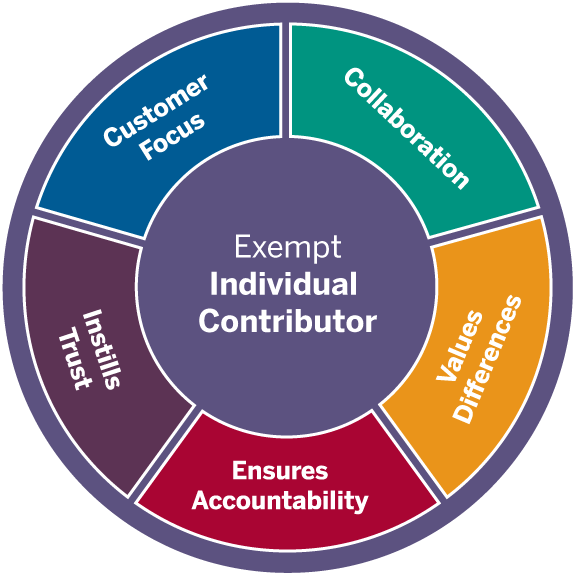Exempt Individual Contributor: Core
Nimble Learning
Actively learning through experimentation when tackling new problems, using both successes and failures as learning fodder
Many of us are good at applying what we have seen and done in the past and utilizing solutions that have worked for us before. However, with the increasing pace of change, being quick to learn and apply first-time solutions is becoming a crucial skill. Our organization needs people who can quickly adapt their thinking to the current situation and be flexible in the face of new or changing information.
You show this competency when you:
- Learn quickly when facing new situations
- Experiment to find new solutions
- Take on the challenge of unfamiliar tasks
- Extract lessons learned from failures and mistakes
How to develop this competency:
Take time to ask questions and define the problem
Too often we think first and only of solutions. Early solutions are not likely to be the best. Set aside the first 50 percent of the time for questions and problem definition and the last 50 percent of the time for solutions. Asking more questions early on helps you rethink the problem and come to more and different solutions. Keep asking why. See how many causes you can come up with and how many organizing categories you can put them in. This increases the chance of a better solution because you can see more connections. Try to solve the problem as close to the root cause as possible.
Take more risks
Not all new ideas are successful. Prepare yourself for this. Research indicates that more successful people have made more mistakes than the less successful. Try new things often. Go for small wins. You can quickly recover if you miss, and more importantly, learn from the results. Never give up when you believe there is a way to make something better. Think of exploring as a series of try-learn -try again -learn some more.
Override your default comfort zone
If you find yourself defaulting to the established way of doing things, you’re not alone. Our brains are more conditioned to be comfortable with the status quo. Change of any kind makes our brains work harder than staying the same. The good news is we can override the brains tendency toward inertia by constantly trying something new: new ways of doing things, new experiences, and new people. This will silence the worried voice inside your head that keeps you tethered to what is comfortable and familiar.
Learn more:
- Book: Problem Solving 101: A Simple Book for Smart People by Ken Watanabe
- Article: Why Nimble Learning is Indispensable for Problem Solving
- Article: Forbes: Overcome Your Fear of Failure
- Video: Learn from Failure
- LinkedIn Learning: Nimble Learning course collection

Exempt Individual Contributor
